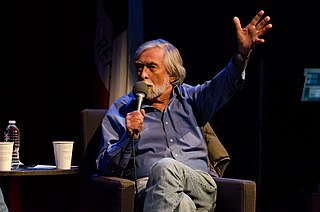Top 55 Quotes & Sayings by Robert Scheer
Explore popular quotes and sayings by an American journalist Robert Scheer.
Last updated on April 14, 2025.
I happen to be one of those in the antiwar part of things who actually supported Bill Clinton when he sent the cruise missiles in to take out bin Laden. I had thought we had the right to use Special Forces to go in for bin Laden. He had attacked American embassies. He attacked ships. And so, I didn't see any need to coddle the Taliban.
Richard Nixon even before becoming president, before meeting Henry Kissinger, he said, "This is ridiculous. Communism is nationalist. The Chinese and Russian and Yugoslav and Cuban and - none of these communists get along, and the Koreans and the Vietnamese, and we can do business with them." And then he opened up to China, and that's when the Cold War started.
Eisenhower provided the first break in the Cold War, by bringing Khrushchev to the United States, in humanizing the Soviets; and then Nixon, by making the opening to China; and then Reagan, even meeting in Reykjavik with Gorbachev and acknowledging that nuclear weapons are a horror. So I won't accept that Republicans just escalate. Republicans, at least when they were more moderate, they were maybe even more isolationist, they sometimes brought sanity to the debate. We don't have that now. We have - all these Republicans have gone off the neoconservative deep end.
The publisher, Jeff Johnson, who has offered not a word of explanation to me, has privately told people that he hated every word that I wrote. I assume that mostly refers to my exposing the lies used by President Bush to justify the invasion of Iraq. Fortunately sixty percent of Americans now get the point, but only after tens of thousand of Americans and Iraqis have been killed and maimed as the carnage spirals out of control. My only regret is that my pen was not sharper and my words tougher.
The death of American liberalism as a significant moral force can be traced to the point in when President Bill Clinton signed legislation that effectively ended the main federal anti-poverty program and turned the fate of welfare recipients, 70 percent of whom were children, over to the tender mercies of the states. With a stroke of the pen, Clinton eliminated what remained of New Deal-era compassion for the poor and codified into law the "tough love" callousness that his Republican allies in the Congress, led by Newt Gingrich, had long embraced.

















